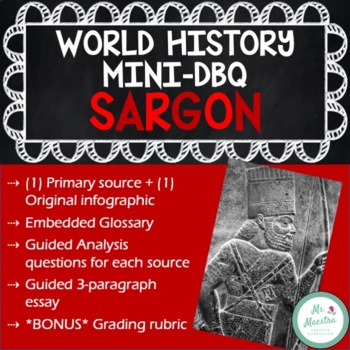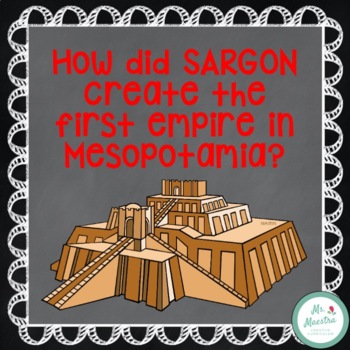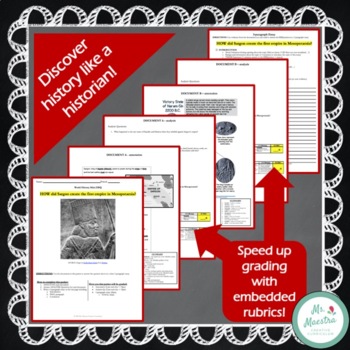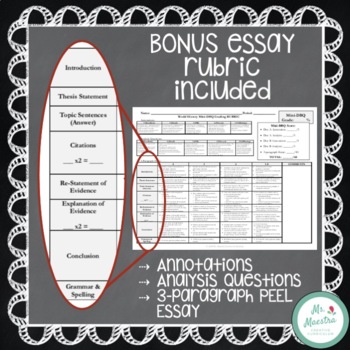Sargon of the Akkadians - World History Mini-DBQ
- PDF
Description
Bring your unit on Mesopotamia to the next level by giving students the chance to find their own answers like a historian! In this mini-DBQ students will analyze one primary source about the reign of the first emperor Sargon of the Akkadians, and an infographic on the Victory Stele of Naram-Sin showing the conquering Akkadians riding into battle. Using that analysis, they'll answer the question "How did Sargon create the first empire in Mesopotamia?"
Each source features lots of support for a variety of learners and different levels of experience with analysis including: embedded glossaries of content-specific and academic terms, lots of margin space for annotations, and targeted analysis questions to guide students towards answering the DBQ Question for each source. Pull it all together with a guided 3-paragraph essay and you've got yourself a wow-worthy lesson! Plus with a convenient PDF format, you can print the whole packet or break it up into shorter worksheets for any class length or unit objective.
Aaaand if you like what you're seeing here, why not check out my other mini-DBQs and resources for writing in social studies!





